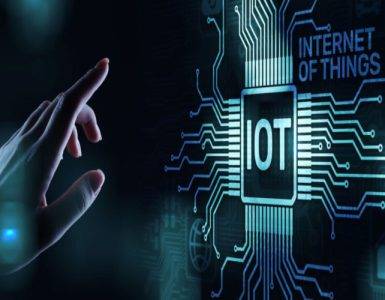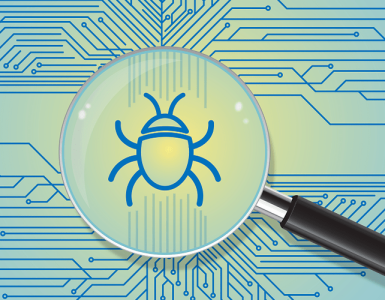Blockchain technology has a crucial role in the development of GameFi, a new trend that combines gaming and decentralized finance. By leveraging blockchain technology, GameFi offers gamers new ways to earn rewards, interact with each other, and engage with the wider gaming ecosystem. In this 1000-word article, we explore the role of blockchain in GameFi and its potential impact on the gaming industry.
Decentralization and Transparency
One of the key features of blockchain technology is decentralization. In a decentralized system, there is no central authority that controls the system. Instead, the system is managed by a network of nodes that work together to maintain the system’s integrity and security. This makes the system more resilient to attacks and provides greater transparency and accountability.
In GameFi, blockchain technology is used to create decentralized gaming platforms that allow gamers to interact with each other and earn rewards through DeFi mechanisms. By leveraging blockchain technology, GameFi can offer a more transparent and secure gaming experience. For example, blockchain technology can be used to ensure that in-game assets are truly owned by the players, rather than by the game developer or another central authority.
Immutable Records and Ownership
Another key feature of blockchain technology is immutability. Once a transaction is recorded on the blockchain, it cannot be changed or deleted. This creates a permanent record of ownership and transaction history, which can be used to ensure the authenticity and provenance of in-game assets.
In GameFi, blockchain technology is used to create immutable records of ownership and transaction history for in-game assets. This ensures that players can trust the authenticity of in-game assets and that they have a clear record of their ownership and transaction history.
Tokenization and Digital Assets
Blockchain technology also enables the creation and management of digital assets. Digital assets are assets that are stored and managed electronically, rather than in physical form. In GameFi, digital assets can take the form of in-game items, currencies, and other rewards.
By using blockchain technology to create digital assets, GameFi can offer gamers new ways to earn rewards and interact with the gaming ecosystem. For example, GameFi games may incorporate non-fungible tokens (NFTs) that represent unique in-game items or achievements. These NFTs can be traded on decentralized marketplaces, allowing players to monetize their gameplay activities.
Smart Contracts and DeFi Mechanisms
Finally, blockchain technology enables the use of smart contracts, which are self-executing contracts that run on the blockchain. Smart contracts can be used to automate a wide range of functions, from asset transfers to voting mechanisms. In GameFi, smart contracts can be used to automate DeFi mechanisms and create new ways for players to earn rewards and interact with the gaming ecosystem.
For example, GameFi games may incorporate token staking mechanisms, where players can earn rewards by locking up their tokens for a set period of time. Smart contracts can be used to automate the process of token staking and reward distribution. Similarly, GameFi games may incorporate liquidity mining mechanisms, where players can earn rewards by providing liquidity to the game’s token market. Smart contracts can be used to automate the process of liquidity provision and reward distribution.
Blockchain-based Virtual Worlds
Blockchain technology also enables the creation of virtual worlds that are powered by decentralized networks. These virtual worlds can be accessed by players from anywhere in the world and offer new ways to interact with the gaming ecosystem. Blockchain-based virtual worlds can be designed to incorporate DeFi mechanisms, such as token staking, liquidity provision, and yield farming, to offer players new ways to earn rewards and engage with the ecosystem.
GameFi and Decentralized Finance
GameFi has the potential to contribute to the wider adoption of decentralized finance applications. By offering gamers new ways to earn rewards and interact with the ecosystem, GameFi can create new use cases for DeFi mechanisms and attract new users to decentralized finance. For example, GameFi games may incorporate decentralized exchanges that allow players to trade tokens without the need for a central authority. This can help to promote the adoption of decentralized exchanges and increase the liquidity of DeFi markets.
GameFi and NFTs
Non-fungible tokens (NFTs) are unique digital assets that are stored on a blockchain. NFTs have become increasingly popular in the gaming industry, as they allow players to own and trade unique in-game items and achievements. GameFi can leverage NFTs to create new revenue streams for game developers and offer players new ways to monetize their gameplay activities. For example, GameFi games may incorporate NFTs that represent rare or unique in-game items, which can be traded on decentralized marketplaces for real-world value.
GameFi and Tokenomics
Tokenomics refers to the study of how tokens are designed and managed in a blockchain ecosystem. In GameFi, tokenomics is a crucial component of the ecosystem, as it determines how players can earn and use tokens within the gaming ecosystem. Tokenomics can be used to incentivize players to engage with the ecosystem and contribute to its growth and sustainability. For example, GameFi games may offer players rewards for completing in-game tasks or contributing to the liquidity of the game’s token market.
GameFi and Community Building
Finally, GameFi has the potential to create new opportunities for community building within the gaming industry. By leveraging blockchain technology to create decentralized gaming platforms, GameFi can offer players new ways to connect with each other and engage with the wider gaming community. GameFi games can incorporate social features, such as chat rooms, forums, and leaderboards, to encourage players to interact with each other and build a sense of community within the ecosystem.
Conclusion
In conclusion, blockchain technology plays a crucial role in the development of GameFi, a new trend that combines gaming and decentralized finance. By leveraging blockchain technology, GameFi offers gamers new ways to earn rewards, interact with each other, and engage with the wider gaming ecosystem. From blockchain-based virtual worlds to tokenomics and community building, GameFi has the potential to transform the gaming industry and contribute to the wider adoption of decentralized finance applications. As GameFi continues to evolve, we can expect to see new innovations and use cases emerge that will shape the future of gaming and finance.





